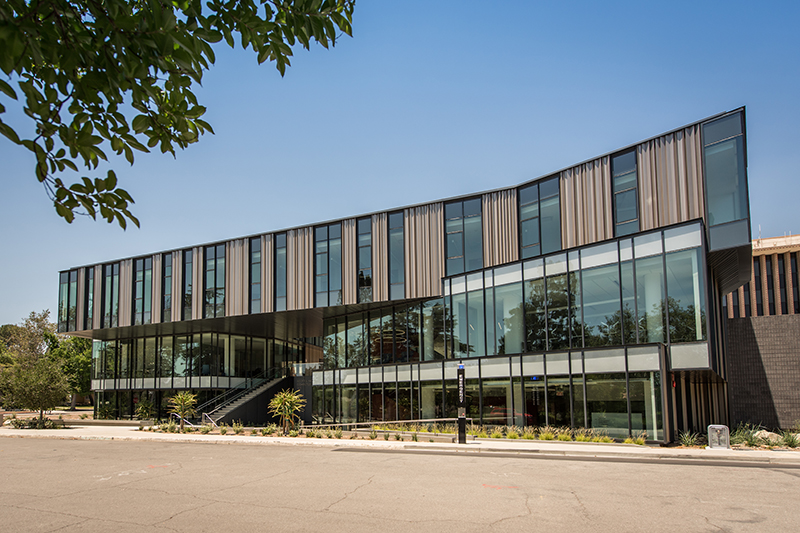NSF Supports Universal Undergraduate Computing Literacy
April 27, 2022
Harvey Mudd College is the headquarters for a new project to develop undergraduate-universal computing curricula. HMC, Claremont McKenna College and Caltech are working together on Computing-As-Literacy (CAL): Undergraduate Universal Computing, recently funded by the National Science Foundation as part of the Improving Undergraduate STEM Education: Education and Human Resources initiative.
“Computing has long been a valuable specialty and worthwhile liberal art,” says Zachary Dodds, Leonhard-Johnson-Rae Professor of Computer Science and CAL co-principal investigator at HMC, along with computer science professor Lucas Bang. “In our era, computing is also becoming a means through which other fields stage explorations and express their insights. An expressive, generative, reproducible medium, computing shares space with the venerable literacies of critical reading, compelling presentation and cogent writing. Creative computing is joining that list, for many professional and personal paths.”
The goal of the project is to develop computing curricula to be offered among other universal undergraduate literacies, much like the traditional English composition class. CMC and Caltech will make computing—the intellectual and professional literacy of authoring and creatively partnering with computational artifacts—required of all their undergraduates. “HMC has required every student to make creative computing part of their skillset since before I arrived in 1999,” says Dodds. “More and more schools are looking to adapt this kind of student support within their own mission and priorities. Partnerships among those schools help everyone.”
Students will be integral to the curriculum, its development and evolution as the new Computing 1 (Comp1) courses are piloted and assessed. Dodds believes the collaboration between HMC, CMC and Caltech will be fruitful. “These three schools certainly have distinct points of pride. Even so, all three channel their students’ ambition for broad, positive impact beyond their campus experiences. Handled thoughtfully, computing can help amplify those impacts.”
The project’s premise is that our future is personal and communal, not computational. Dodds and the project team intend CAL to re-place computing as the personal and communal literacy it is. CAL’s goal is to deepen all undergraduates’ personal skillsets, both to include our era’s defining technologies—and in service to our era’s defining challenges.
